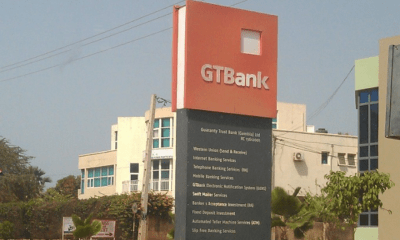Nigeria News
‘It Was Not Hacked’ – EFCC Reacts To Hacking Claims On Its X Account

The Economic and Financial Crimes Commission (EFCC) has refuted claims that its X account was compromised by hackers.
There had been rumors that suspected internet fraudsters, who previously threatened to launch a cyberattack against the EFCC, had gained control of the anti-corruption agency’s X account.
These fraudsters allegedly accused the EFCC of violating constitutional procedures in its efforts to combat online fraudulent activities among Nigerians.
Checks by Naija News on Thursday morning showed that EFCC’s X account was temporarily unavailable, leading to further speculation.
However, the agency’s website and its other social media platforms, such as Facebook and Instagram, remained operational.
In an interview with The Punch on Thursday, EFCC spokesperson, Dele Oyewale, dismissed the hacking rumors, explaining that the account’s unavailability was due to a routine update being carried out on the account.
“We are updating our records on the account. It was not hacked. It will soon start running,” Oyewale assured, emphasizing that the account would be back online shortly.
GTB Speaks On Hackers Seizing Website, Customers’ Data
Meanwhile, one of Nigeria’s commercial banks, Guaranty Trust Bank (GTBank), has described reports of its website being seized by hackers as entirely false.
Checks by Naija News on Wednesday night showed that the GTBank website, gtbank.com, was no longer accessible.
This issue arose just a day after the domain was renewed for another five years, extending its validity from August 13, 2024, through March 21, 2029, according to several online platforms that track domain information.
No hacker group has claimed responsibility for the alleged hack on the website.
According to Peoples Gazette, the alleged attackers may have set up a fraudulent version of the website in an attempt to phish customers’ sensitive information.
A cybersecurity expert familiar with Nigeria’s banking sector indicated that the compromise could have involved the bank’s login credentials, rather than the domain being hijacked for resale.
Despite the disruption to the website, the bank’s mobile applications on Android and iOS remained functional at the time of this report.
However, a top GTB executive (name withheld) who spoke with Daily Post, clarified that the bank had a connectivity issue, but it had nothing to do with hacking.
The source said, “It’s false. What we are experiencing is a connectivity issue and has nothing to do with the alleged hacking.”












